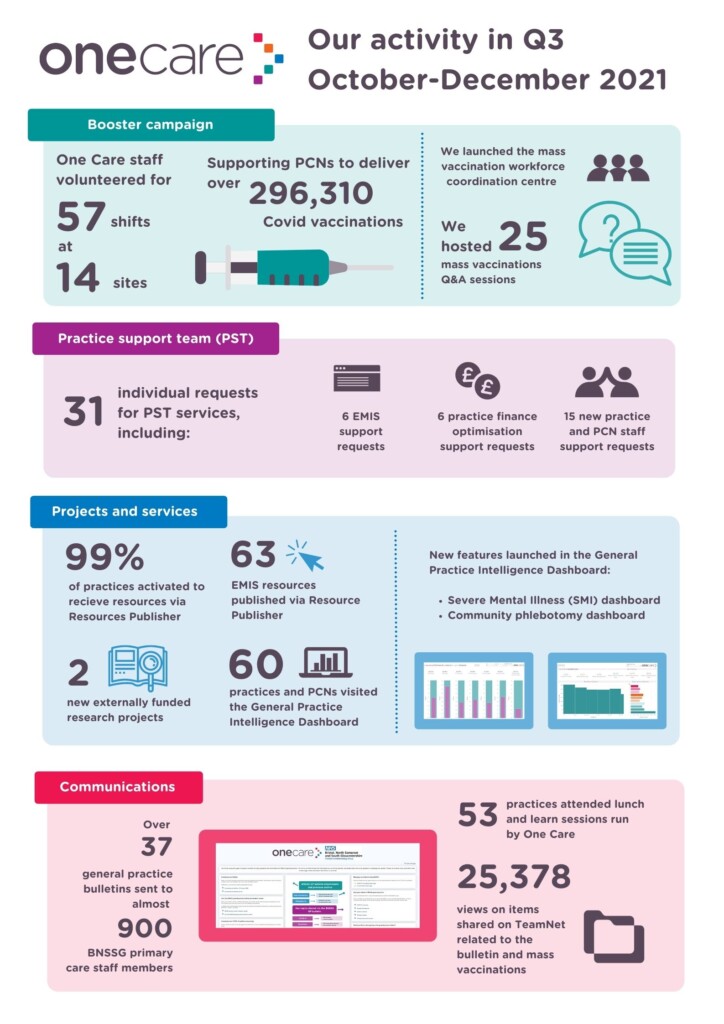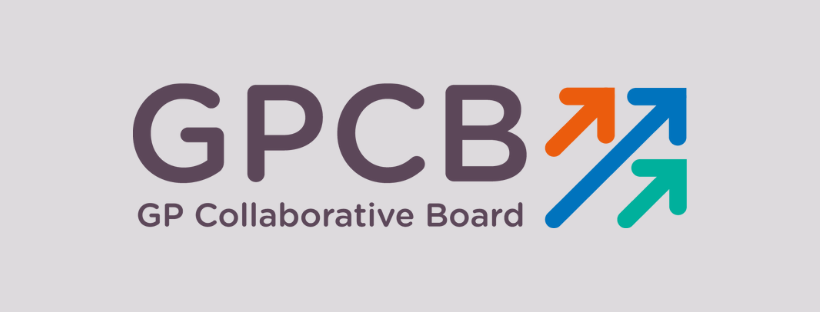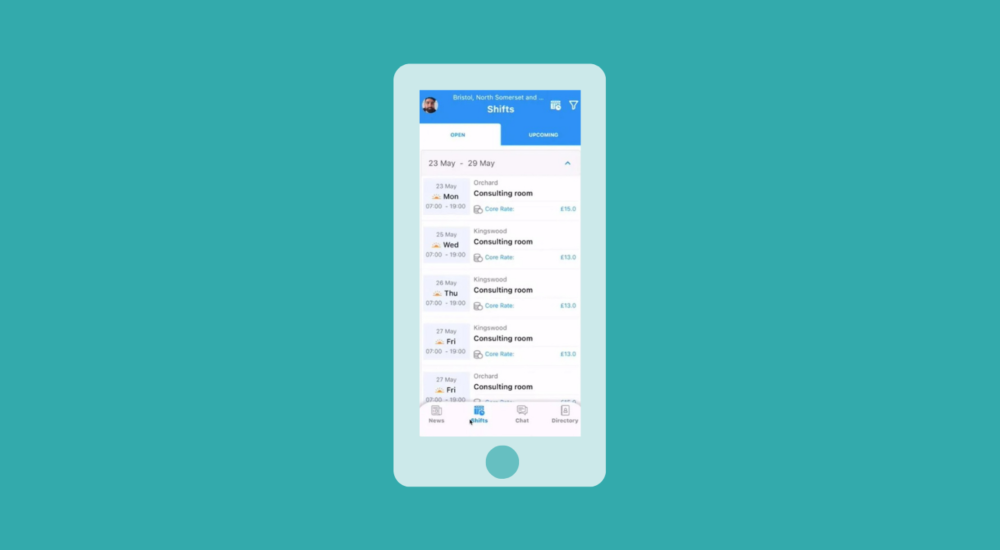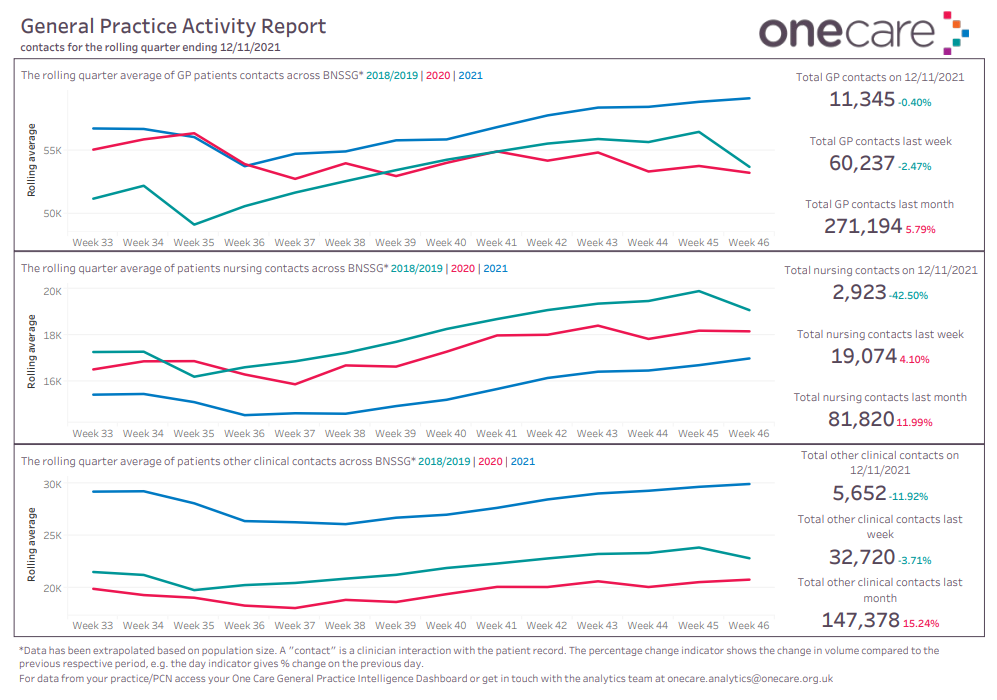We have published our latest quarterly round-up of strategic changes, information about new One Care projects and a one page infographic showing the direct support we’ve provided to practices.
The last three months have continued to present general practice with extreme challenges and pressures. The highly transmissible Omicron variant of Covid-19 has driven unprecedented levels of infections globally, resulting in NHS England and the government asking general practice, along with the wider system, to focus on vaccinations and urgent care.
In mid-December, to support practices with their booster rollout targets, One Care staff temporarily stood down from normal duties to provide extra resourcing to practices. One Care staff offered their services to PCNs, helping with various administrative, marshalling and reception tasks. In total, 57 shifts were covered at 14 venues and the feedback we received from practices about our staff was fantastic. Similarly, members of the team enjoyed going into the surgeries and vaccination centres, meeting new people, gaining new experiences, and witnessing first-hand the demands of the booster programme.

Click here to enlarge infographic.
At the same time, One Care worked alongside NBT and VANS to create a more efficient process for PCNs and practices to request staff and volunteers for the mass vaccination programme. The newly-launched model sees One Care act as a single point of access for mass vaccination staffing requests rather than there being multiple avenues to request cover from, which often resulted in double bookings. This makes the process more efficient and time effective for general practice, staff, volunteers and system partners. This process was enabled by the staff sharing agreements One Care contributed to during the pandemic, which allow healthcare professionals to work across the different organisations in our region.
To help practices prepare for the potential impact of Omicron, One Care established an escalation framework to assist practices with a pragmatic checklist of operational considerations during the surge. To ensure general practice was well represented and involved in system decisions during this period of system pressure, we relaunched the SitRep to get a better understanding of the issues faced by practices. We used this information alongside the general practice activity report to represent general practice at all system bronze, silver and gold meetings.
It has been widely recognised that Covid-19, and the wider effects of the pandemic, have significantly impacted mental health, aggravating pre-existing conditions as well as affecting people who have not previously experienced poor mental health. One Care has been working with a PCN in South Bristol to identify patients with an active mental health condition who might benefit from a tailored intervention. The practice has provided us with great feedback about this piece of work, so please do get in touch if you would be interested in looking at something similar in your PCN.
Our business intelligence team have also added a Serious Mental Illness (SMI) dashboard to the General Practice Intelligence Dashboard. The dashboard shows what proportion of people on practices’ SMI register, who should receive a set of six physical health checks, have had each of the health checks and how many have had the full set. Easy access to this data supports practices to focus on where uptake of physical health checks can be improved, which will help maximise on available income and improve patient outcomes.
A key priority for One Care in recent months has seen the successful rollout of community phlebotomy – a new process for taking bloods in community settings. For many years, general practice has taken outpatient bloods on behalf of secondary care, despite not being contracted for the work. But the community phlebotomy programme has addressed the governance of this work, ensuring blood results are returned to the requester in secondary care and general practices are resourced for this programme.
One Care have further saved general practice time by creating, updating and sharing templates to the latest referral forms through Resource Publisher, meaning practices don’t need to maintain these templates themselves. To publish resources to a practice, technical data sharing agreements are needed. One Care now has these in place with 99 per cent of practices, as well as most PCNs and localities.
During this period, our subscription model for the next three years was signed off by our Board. We had intended to start meeting with PCNs in December to discuss this, but these meetings were postponed due to the booster programme and have been taking place throughout January and February. Many of you will have now responded to us regarding your intentions for next year. We’ve found these discussions really valuable and will be looking at how we can continue these discussions at more regular intervals moving forward.
We’re also inviting all practices to join us to hear about the work we’ve done throughout 2021/22 and our plans for 2022/23 onwards at our shareholder event on the afternoon of Thursday 28 April 2022. For now, please hold the date and we will share more details in due course.
We’re pleased to say that the One Care team has continued to grow in recent months in line with our development, and all current staff can be found on our website. In recent months, this has included particular growth of our project management capacity in our transformation team. As always, a huge thanks for your continued support. If you would me or a member of the team to visit your practice or attend a locality meeting to talk more about our work and how we can support you, please get in touch.













